Disclosure: Meeple Mountain received a free copy of this product in exchange for an honest, unbiased review. This review is not intended to be an endorsement.
I’m not entirely sure as to what’s going on in Equinox, designer Reiner Knizia’s recent game from publisher Plan B. The box tells me that the creatures of the forest come together every spring and autumn for a competition, hoping to be added to the storybook that records the great deeds of the mystical forest’s history. The exact nature of that competition is unclear. Are they fighting to the death? Is it a blinking contest? Rap battle? Bake off? Who’s to say.
What is clear is that we are spectators of this great struggle, and we’re placing bets on who we think will make it to the end. Wagers on creatures who survive/don’t blink/spit the best verse/make a good flan are worth points at the end of the game.
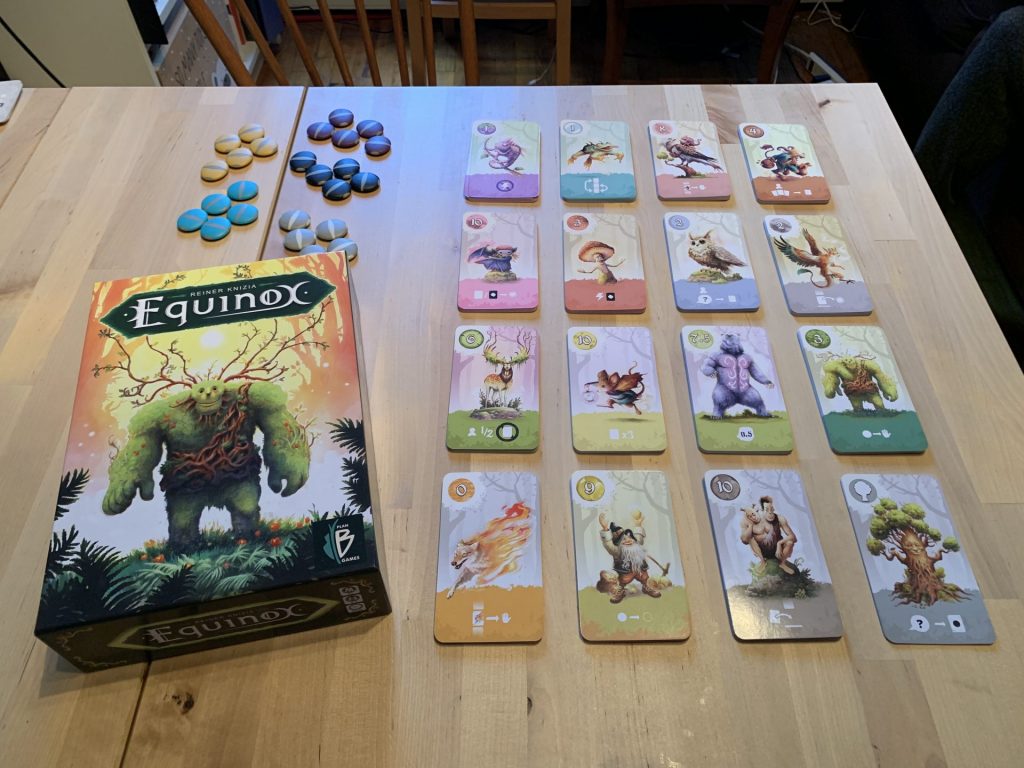 There’s more to Equinox than gambling. This isn’t Camel Up, a (delightful) game where the race runs itself. The players have a great deal of influence over the outcome of each round. On any given turn, a player may place a wager then play a card. Unusually for Knizia, neither is required. Each round ends once all eight columns, one for each creature, have at least one card in them. The creature with the lowest strength vanishes into a puff of pink and purple smoke.
There’s more to Equinox than gambling. This isn’t Camel Up, a (delightful) game where the race runs itself. The players have a great deal of influence over the outcome of each round. On any given turn, a player may place a wager then play a card. Unusually for Knizia, neither is required. Each round ends once all eight columns, one for each creature, have at least one card in them. The creature with the lowest strength vanishes into a puff of pink and purple smoke.
Bets placed earlier on in the game are worth more points, so it behooves players to proactively stake their claims. Early bets are also riskier. They’re susceptible to targeting by other players, who may focus on playing low-strength cards to your more valuable stakes.
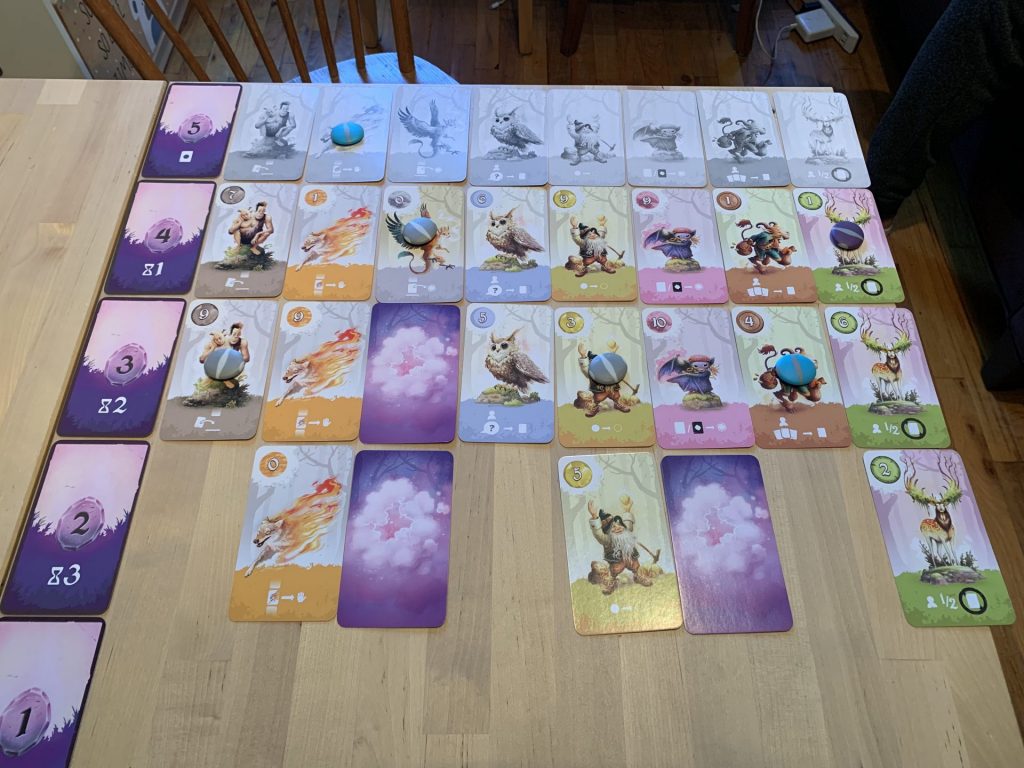
Early wagers are not entirely left to fend for themselves, though. The creatures all have powers, which can only be used by the player who has the highest overall stakes in that column. Any time someone places a card for a creature they have the greatest investment in, they get to use its power. These allow for all sorts of shenanigans: retrieving previously played cards, switching cards, discarding extra cards to draw up replacements, retrieving lost bet markers so they’re available to you again, etc.
There’s one more wrinkle. In the first round of the game, and the first round only, players can place a secret wager by choosing a card from their hand, setting it facedown on the table, and placing a betting marker on top of it. This wager will be worth more than any other bet placed during the game. Players are under no obligation to reveal the secret wager until the end of the game, but they can choose to at the start of any turn. As I mentioned before, access to creature powers hinges on the total value of your investment. If that creature’s power would come in clutch and you aren’t already the primary stakeholder, you can reveal your secret bet to gain influence.
Player Count
Equinox advertises itself as accommodating 2-5 players. It should, then, also advertise itself as containing two different games. Which one you end up playing depends on the size of your party.
I would argue Equinox isn’t a game at 4-5 players, or at least it’s not a particularly good one. It’s more of a chaos factory. Four is marginal, I’d do it if people wanted to, but Knizia’s design is ill-served by claiming it can seat five. Many of the player decisions in Equinox have to do with tempo. With four other players playing cards between your turns, the board state is so far from predictable that most choices aren’t terribly meaningful.
Played with two or three, Equinox is a delightfully sharp and thoughtful little game. At two, you may find it a little more confrontational than your tastes permit, but an adjustment in play style can make that less of an issue. With only one or two opponents, there are all sorts of meaningful choices, particularly as each round approaches its end. The game comes with fourteen creatures, and only eight are used at a time. It’s lovely to see the ways in which different powers gain or lose potency based on what else is out on the table.
Grandmother, What Big Cards You Have
Much has been made of the production choices for Equinox, with people complaining about the large tarot cards. I get it. I do. If Chris Quilliams’ art is well-served, the game itself is impeded. At least in the big picture.
If we’re looking at the trees instead of the forest, the production choices make complete sense. The betting markers, little plastic stones, are satisfying to hold and to place. The cards beautifully showcase the charming art. It is deeply satisfying to lay out a tarot-sized card on the table every turn.

If we zoom out to look at the forest, though, I see two problems. The first is that the game is too large. Equinox wants to be played at a bar, or on a picnic. It exists at just the right intersection between relaxed and involving to shine in such a context. As it is, that bar would need a pretty big table, and that picnic blanket would need a lot of extra space. The cards, laid out in an 8 x 5 grid, take up a chunk of real estate. Beyond that, the box is too big to pop in your bag and bring with you. Equinox is based on Knizia’s early-2000s release Colossal Arena, which came in a box simultaneously half the size of this one and twice as big as it itself needed to be.
The second issue is price. Does Equinox require a $40 production? I’m not so sure about that. If this were a $20 card game in a travel-sized box, you would be reading an absolutely smitten review urging you to run right out and buy a copy.
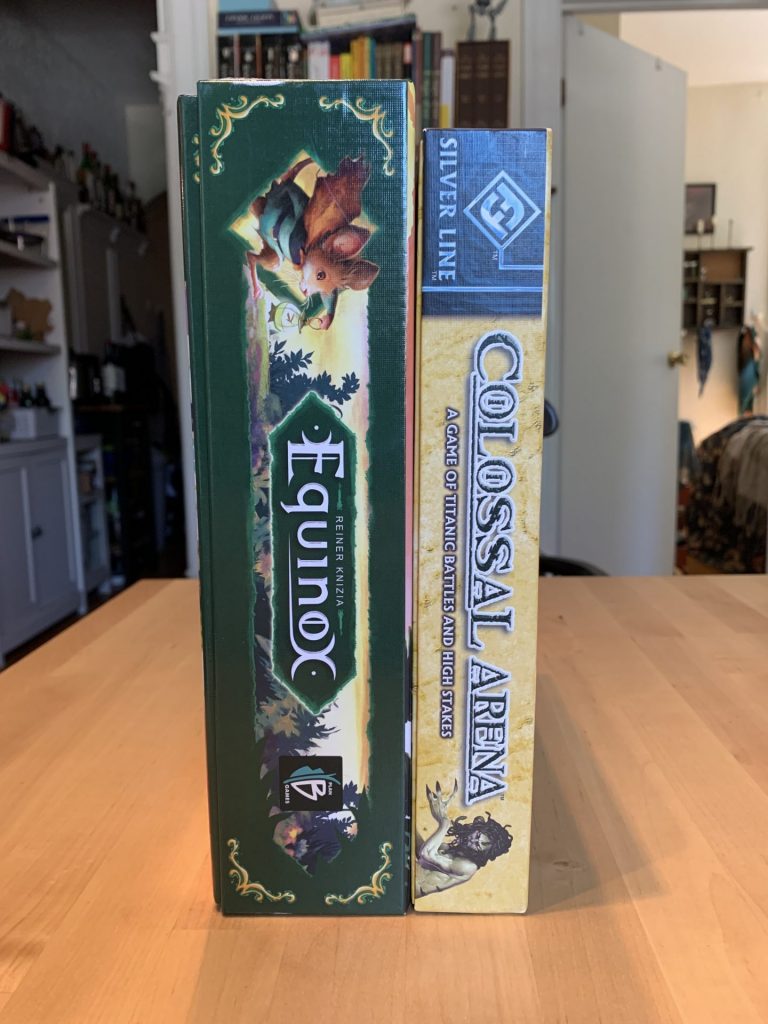
Poof
At first, I found Equinox too lacking in tension, too full of change and lacking in any consequences. Once I sorted out the player count issue, it revealed itself to be modest, yes, but also surprisingly rich. By my third play, I was getting into the rhythm and feeling the impact of my choices. Therein lies the problem, as far as Equinox’s prospects. It takes a few plays to reveal itself. That isn’t always something the current board game market allows modest games the time and space to do. I may not be smitten, but I’m pretty fond of it all the same.


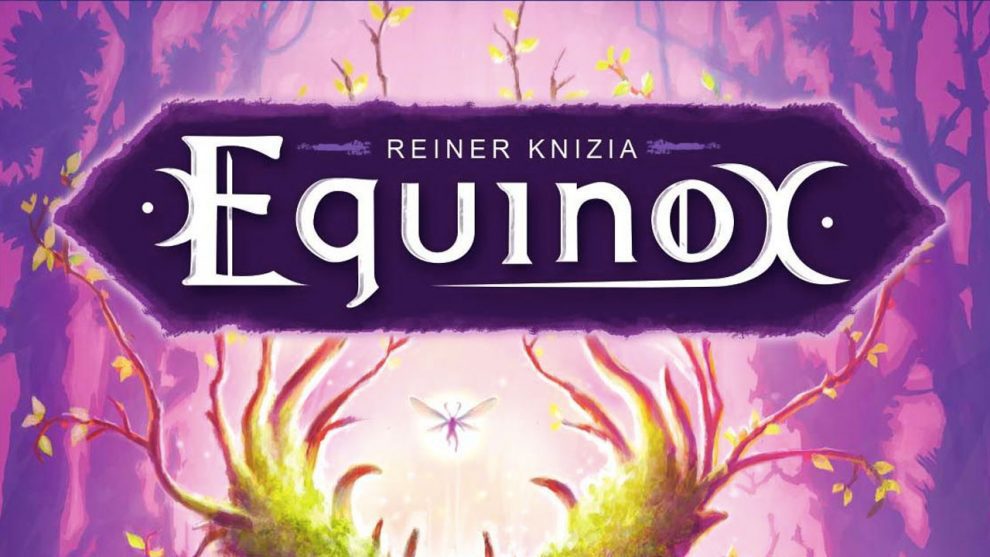
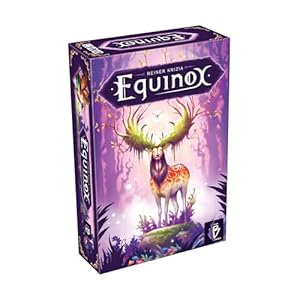



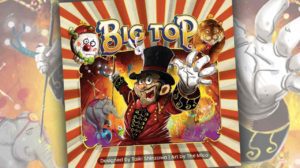




Add Comment